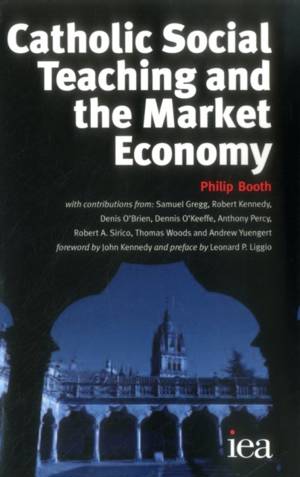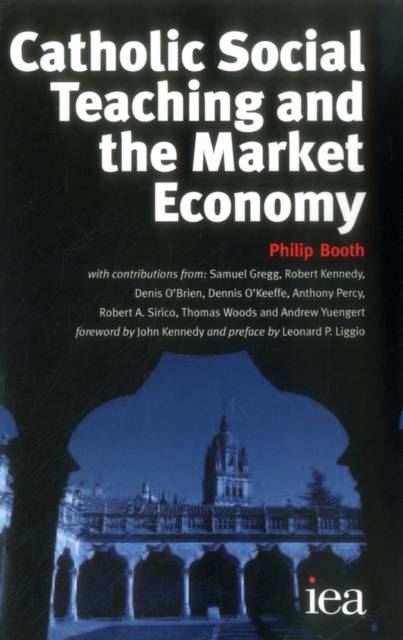
Je cadeautjes zeker op tijd in huis hebben voor de feestdagen? Kom langs in onze winkels en vind het perfecte geschenk!
- Afhalen na 1 uur in een winkel met voorraad
- Gratis thuislevering in België vanaf € 30
- Ruim aanbod met 7 miljoen producten
Je cadeautjes zeker op tijd in huis hebben voor de feestdagen? Kom langs in onze winkels en vind het perfecte geschenk!
- Afhalen na 1 uur in een winkel met voorraad
- Gratis thuislevering in België vanaf € 30
- Ruim aanbod met 7 miljoen producten
Zoeken
Catholic Social Teaching and the Market Economy
Paperback
€ 20,95
+ 41 punten
Omschrijving
In the context of both political economy and Catholic Social Teaching, this book examines the extent to which the teaching can be used to justify the free market, or alternative forms of political and economic organisation, in areas such as taxation, welfare, foreign aid, labour markets and business.
Specificaties
Betrokkenen
- Uitgeverij:
Inhoud
- Aantal bladzijden:
- 280
Eigenschappen
- Productcode (EAN):
- 9780255365819
- Verschijningsdatum:
- 18/05/2007
- Uitvoering:
- Paperback
- Afmetingen:
- 128 mm x 216 mm
- Gewicht:
- 36 g

Alleen bij Standaard Boekhandel
+ 41 punten op je klantenkaart van Standaard Boekhandel
Beoordelingen
We publiceren alleen reviews die voldoen aan de voorwaarden voor reviews. Bekijk onze voorwaarden voor reviews.








